Abstract
OBJECTIVE: To provide empirical data on the attitudes of Ontario family physicians and gynecologists toward the use of electively aborted fetal tissue for transplantation (FTT). DESIGN: Cross-sectional survey. SETTING: Ontario. PARTICIPANTS: Random samples of 300 physicians from the membership list of the College of Family Physicians of Canada and 300 from the membership list of the Society of Obstetricians and Gynaecologists of Canada; 248 family physicians and 186 gynecologists responded, for an overall response rate of 72%. OUTCOME MEASURES: Physicians' attitudes toward incentives to collect fetal tissue at abortion, patient-management issues, consent issues and potential conflicts in the supply and demand of fetal tissue. RESULTS: Of those surveyed 75% agreed that there should be no incentives to collect fetal tissue at abortion, 90% believed that decisions to abort must be separate from decisions to donate fetal tissue, 94% agreed that an option to donate fetal tissue should be discussed only after a firm decision to abort has been made, and 88% stated that the demand for fetal tissue should not hinder the availability of new abortion technology such as the abortifacient pill (RU 486). CONCLUSIONS: Results suggest that there is general approval for FTT. Apparent variations between responses to global statements and to practice-oriented statements suggest strategies for effective Canadian public policy regarding FTT.
Full text
PDF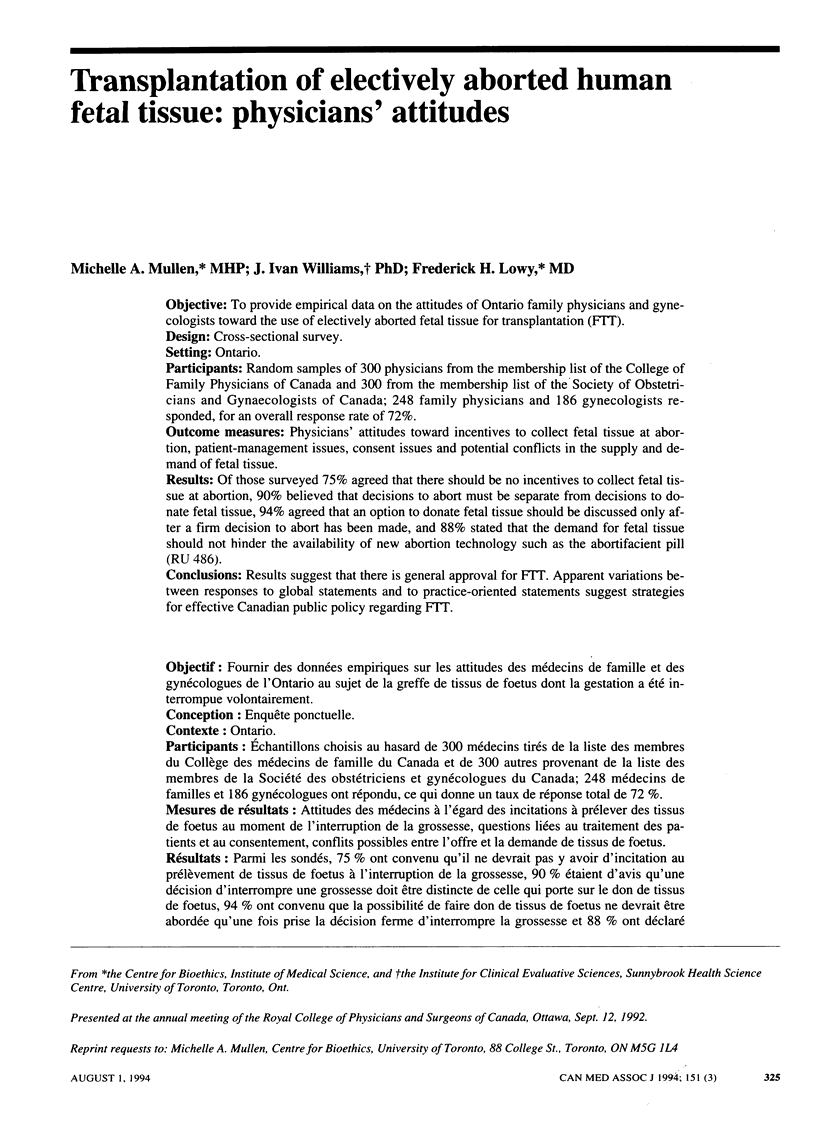
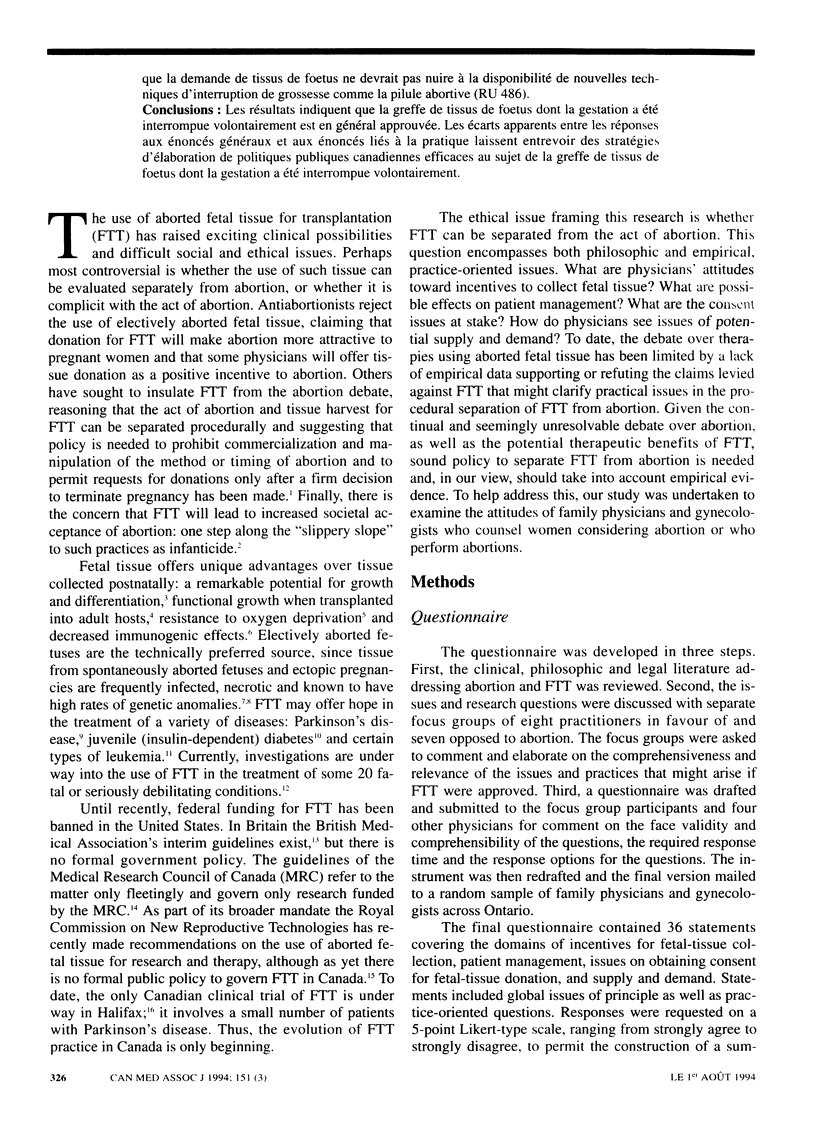
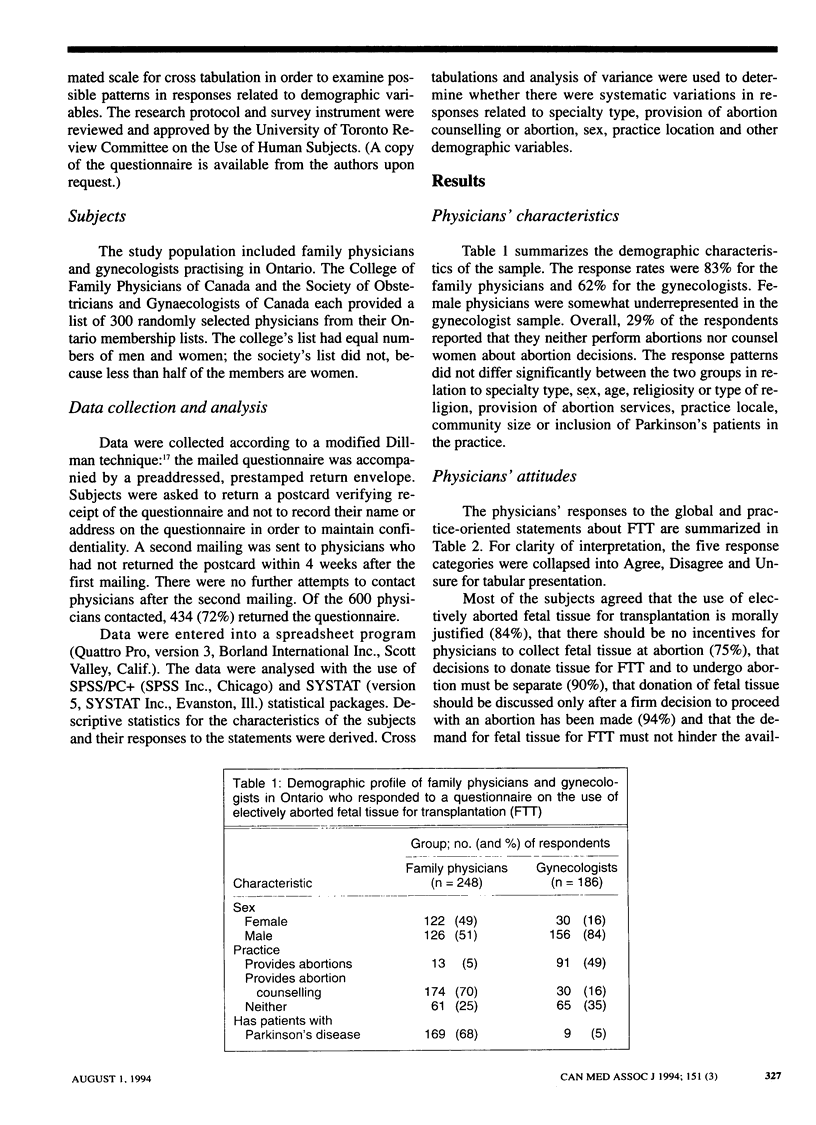
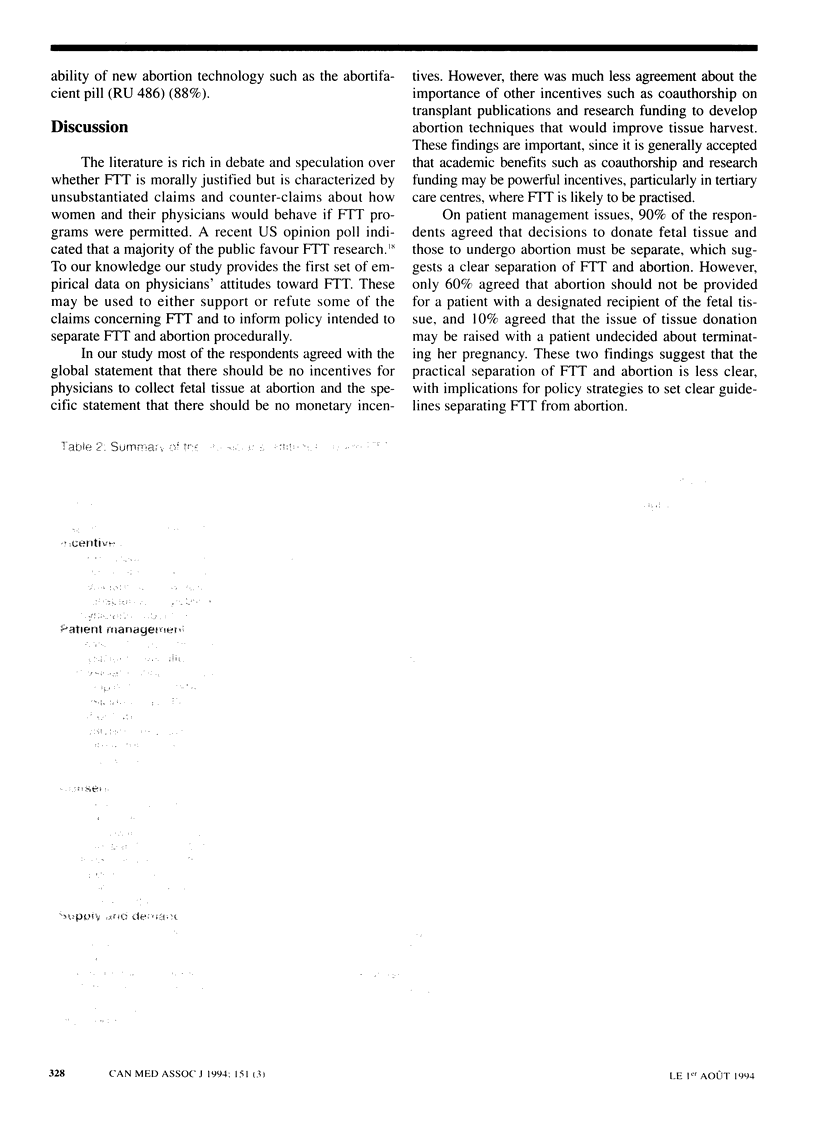
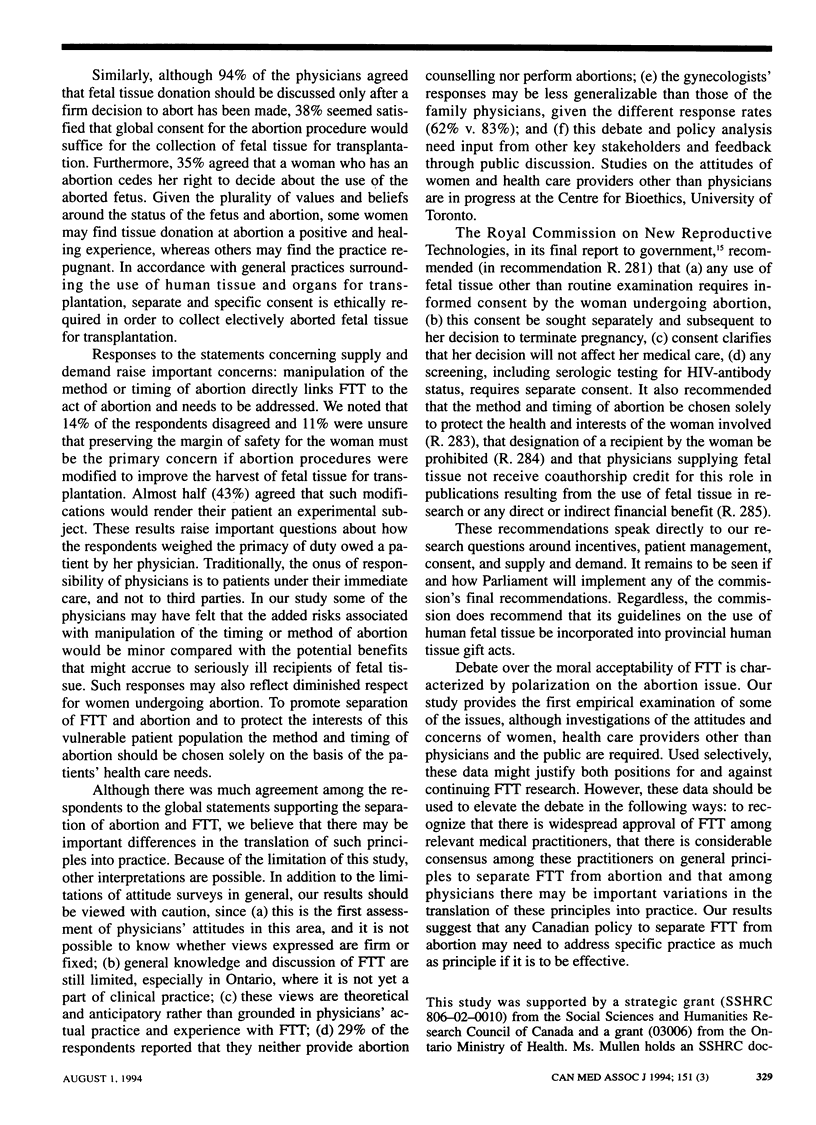
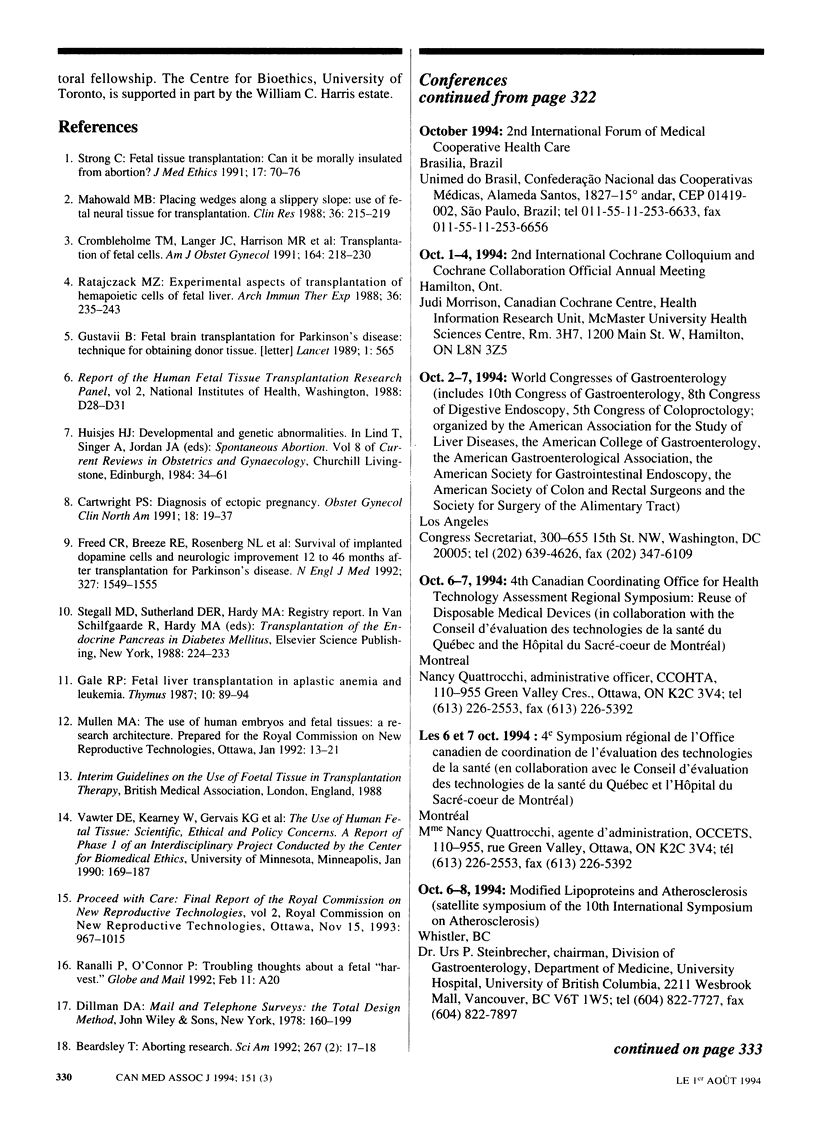
Selected References
These references are in PubMed. This may not be the complete list of references from this article.
- Beardsley T. Aborting research. Sci Am. 1992 Aug;267(2):17–18. doi: 10.1038/scientificamerican0892-17. [DOI] [PubMed] [Google Scholar]
- Cartwright P. S. Diagnosis of ectopic pregnancy. Obstet Gynecol Clin North Am. 1991 Mar;18(1):19–37. [PubMed] [Google Scholar]
- Crombleholme T. M., Langer J. C., Harrison M. R., Zanjani E. D. Transplantation of fetal cells. Am J Obstet Gynecol. 1991 Jan;164(1 Pt 1):218–230. doi: 10.1016/0002-9378(91)90656-c. [DOI] [PubMed] [Google Scholar]
- Freed C. R., Breeze R. E., Rosenberg N. L., Schneck S. A., Kriek E., Qi J. X., Lone T., Zhang Y. B., Snyder J. A., Wells T. H. Survival of implanted fetal dopamine cells and neurologic improvement 12 to 46 months after transplantation for Parkinson's disease. N Engl J Med. 1992 Nov 26;327(22):1549–1555. doi: 10.1056/NEJM199211263272202. [DOI] [PubMed] [Google Scholar]
- Gale R. P. Fetal liver transplantation in aplastic anemia and leukemia. Thymus. 1987;10(1-2):89–94. doi: 10.1007/978-94-009-3365-1_9. [DOI] [PubMed] [Google Scholar]
- Gustavii B. Fetal brain transplantation for Parkinson's disease: technique for obtaining donor tissue. Lancet. 1989 Mar 11;1(8637):565–565. doi: 10.1016/s0140-6736(89)90114-1. [DOI] [PubMed] [Google Scholar]
- Jonsen A. R. Transplantation of fetal tissue: an ethicist's viewpoint. Clin Res. 1988 Apr;36(3):215–219. [PubMed] [Google Scholar]
- Ratajczak M. Z. Experimental aspects of transplantation of haemopoietic cells of fetal liver. Arch Immunol Ther Exp (Warsz) 1988;36(2):235–243. [PubMed] [Google Scholar]
- Strong C. Fetal tissue transplantation: can it be morally insulated from abortion? J Med Ethics. 1991 Jun;17(2):70–76. doi: 10.1136/jme.17.2.70. [DOI] [PMC free article] [PubMed] [Google Scholar]


